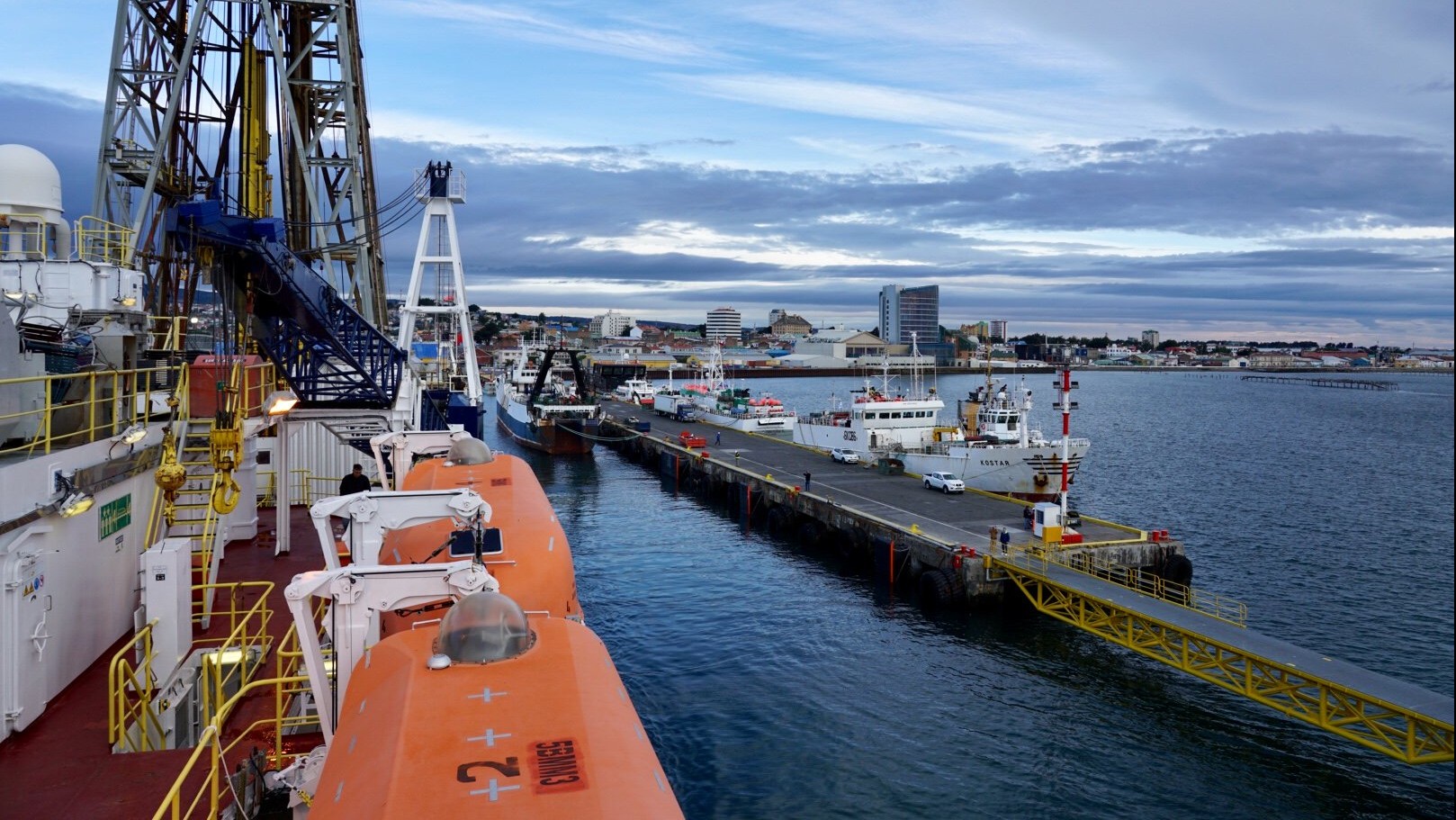Columbia’s Winckler Co-Leads Southern Ocean Research Expedition

Climate scientist and isotope geochemist at Columbia University’s Lamont-Doherty Earth Observatory, Gisela Winckler , is the co-chief scientist on a 2-month expedition that will explore the history of the Earth’s climate system in the Southern Ocean.
Together with co-scientist Frank Lamy of Germany’s Alfred Wegener Institute, Winckler will lead an international team of 30 scientists to drill the seabed up to 500m at seven points off the southernmost coast of Chile and in international waters to study core samples dating as far back as 10 million years. The goal is to obtain valuable information regarding the history of the Antarctic Circumpolar Current (ACC), which is the only current that flows uninterrupted around the globe.
The ACC is the planet’s largest current, moving up to 150 times the flow of all the world’s rivers combined and is thought to play a key role in regulating natural climate swings. However, despite its importance in the global climate system, it has largely gone uninvestigated and there is still much unknown about how the ACC works, including how it might now respond to human-induced climate change.
The cruise will provide important information for better understanding processes important for predictive climate models and for more accurate forecasting of future global climate change related to increasing atmospheric carbon dioxide levels.
The scientific mission, called DYNAPACC (Dynamics of the Pacific Antarctic Circumpolar Current), is set to sail May 25 aboard the JOIDES Resolution, which is operated and administrated by the International Ocean Discovery Program (IODP).
Along with several postdoctoral researchers from Lamont-Doherty, the scientific party will also include researchers from the US, Japan, the United Kingdom, South Korea, Italy, China, Brazil, France, New Zealand, the Netherlands, Spain and India.
PORT CALL
While docked in port at southern Chile’s Punta Arenas, Lamy and Winckler received several Chilean scientists and post-graduate students from Universidad de Magallanes’ research center Gaia Antártica as well as officials from the Chilean government’s Antarctic institute INACH for networking, information sharing and a tour of the ship.
The co-chief scientists also gave presentations and tours to local high school students associated with Amercian Corner, a US Embassy-led program to educate students on English and US culture.
“I find it extremely important to talk about climate change, not just in the general sense, but to get people engaged and give them the opportunity to understand what this is all about,” said Winckler. “We can move out of that political controversy over whether or not there is climate change and global warming, into a space where people are well educated, engaged and can see what is happening.”
“From Columbia, we have lots of collaboration with Chilean researchers and I am grateful for this opportunity to interact with local scientists here, to have the opportunity to have that exchange,” she added. “It was also important for the high school students to tour the ship and see us working here, to see the human faces behind the science.”
You can follow developments of the expedition on Twitter. Winckler’s handle is @GiselaWinckler and the JOIDES Resolution’s @TheJR with the hashtag #Exp383.
Use this and this links from IODP for more information on the project.
To see the Pictures Gallery click here.